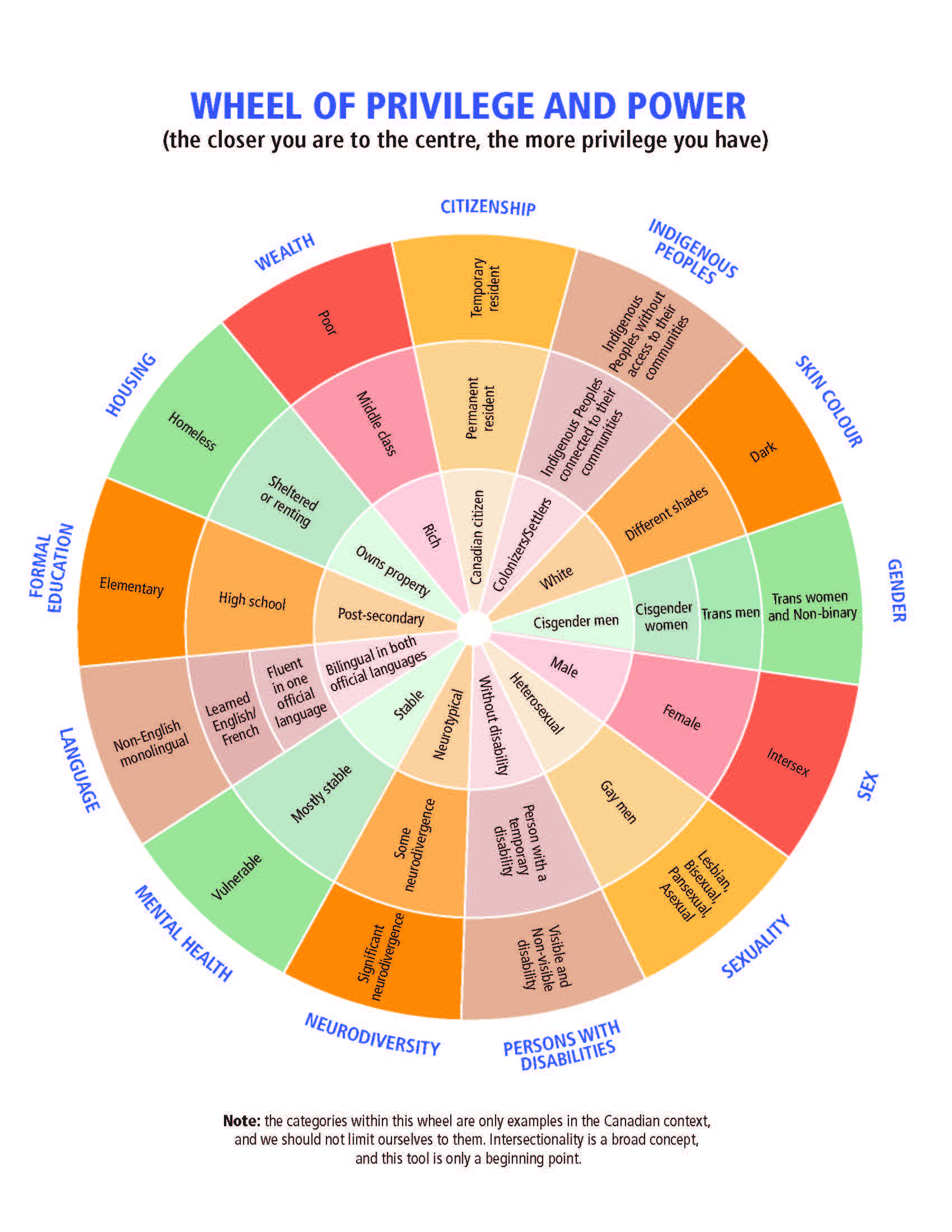Activity 1.2 | Intersectionality and privilege
Activity 1.2 | Intersectionality and privilege
Wheel of Power
This work of examining the ongoing impacts of colonial violence is not superfluous. This work is what is a requirement for ethical practices with children and families in BC in the 21st century.
In this next reflective practice, you will work with the framework of intersectionality to identify your power and privilege. This will support you as a child care manager and leader to practice in alignment with the ECEBC Code of Ethics (2021), specifically to “Explore our own perspectives, privileges, biases, and assumptions and how they impact our interactions with children, families, colleagues and community members” (p. 13).
The Canadian government provided the "Wheel of Privilege," a visual tool used to help individuals and groups understand different aspects of identity, such as race, gender, socioeconomic status, ability, and more. Spend some time in each category, identifying your positionality and reflecting on your position of power and privilege in relation to others:
 Now, spend time reflecting on the word, power.
Now, spend time reflecting on the word, power.
- Do you identify as a powerful leader?
- How does your experience of being powerful shift in different social situations?
Examine various categories of the wheel of power and privilege. Spend time thinking about different people in your life, with whom you are in caring relationships. How are they situated on this wheel? Use some visual marker to orient these people on this wheel (you might use dots or checkmarks to indicate where another person is situated). After you have located yourself, and others who you care about on this wheel, notice which areas of the wheel are less relative to you and to those whom you care about.
Given what you know about bias, how it forms as a pattern in the brain, and given that there are demographics of people whose experience is removed from your own relationships and ways of relating with the world, what can you discern?
Finally, based on this information:
- What commitments can you make to becoming more informed about a particular group of people?
- What do you need to make this learning possible?
- Is there anyone that you can learn with?
As a learner, and a leader, how might you make your own learning journey visible so that you role-model opportunities for dismantling personal biases?
Keep in mind, this is not intended as a performative act. In encountering those whom we have positioned as “Others” we risk harming ourselves and others in our missteps. This step is intended to support you in taking a step on your personal journey to “strive toward an anti-racist, anti-oppressive framework from which to base all practice” (Early Childhood Educators of British Columbia, 2021, p. 14).
References
Early Childhood Educators of British Columbia (2021). Code of Ethics (7th Edition). https://www.ecebc.ca/resources-merchandise/code-of-ethics
Immigration, Refugees and Citizenship Canada. (2022, July 18). Wheel of privilege and power [PDF]. Government of Canada. https://www.canada.ca/content/dam/ircc/documents/pdf/english/corporate/anti-racism/wheel-privilege-power.pdf